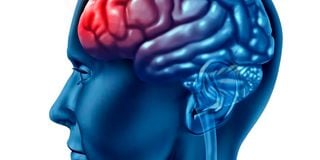Brain-boosting foods that improve memory and cognition

Nuts are a good source of vitamin E, an antioxidant that protects the brain from damage.
What you need to know:
- To get the most benefits, include a variety of foods in your diet.
- In addition to eating the right foods, other lifestyle factors can help improve brain health. These include getting enough sleep, exercising, and managing stress levels.
- Play games like puzzles and Sudoku to keep your brain active.
Do you often feel like you cannot focus or your memory is not as sharp as it used to be? With age, it is normal for one's cognitive function to decline slightly.
The brain is an organ that is responsible for thought, feeling, and movement. It is located in the skull and is divided into three parts: the cerebrum, the cerebellum, and the brainstem.
The cerebrum is the largest part of the brain and is responsible for intelligence, sensory perception, voluntary movement, and emotion.
The cerebellum is located at the back of the brain and is responsible for balance, coordination, and movement.
The brainstem is located at the back of the skull and is responsible for subconscious activities like breathing, heart rate, and wakefulness.
Just like other parts of the body, the brain requires nutrients to function properly.
Here are brain-boosting foods that will help improve memory and cognition:
Blueberries
Blueberries just like other berries are rich in antioxidants, believed to protect the brain from damage caused by free radicals. Free radicals are molecules that can damage cells, and they have been linked to the development of Alzheimer's disease and other age-related cognitive declines. Add blueberries to your breakfast cereal, yogurt, or smoothie.
Broccoli
Broccoli is a cruciferous vegetable high in antioxidants and vitamin K. It protects the brain from damage caused by free radicals and may reduce the risk of age-related cognitive decline. Broccoli can be eaten raw or cooked. Try adding it to your salad or stir-fry.
Salmon
Salmon is a reliable source of omega-three fatty acids. These are essential for brain health and have been shown to improve memory, concentration, and mood. Salmon can be grilled, baked, or smoked.
Pumpkin seeds
Pumpkin seeds are a reliable source of zinc, magnesium, iron, and copper. These minerals are essential for brain health.
Magnesium in pumpkin seeds helps to improve memory, cognitive function, and mood. Zinc deficiency is linked to cognitive impairment. Iron is necessary for producing red blood cells, which carry oxygen to the brain. Copper is important for nerve function. Pumpkin seeds can be eaten as a snack or added to your breakfast cereal or yogurt.
Leafy vegetables
Leafy vegetables such as spinach, kale, and Swiss chard are rich in nutrients that are essential for brain health. These include vitamins C, E, and K, folate, carotenoids, and flavonoids.
In addition, they provide the brain with the antioxidants it needs to protect against damage caused by free radicals. They also reduce inflammation, which has been linked to cognitive decline. Try adding leafy vegetables to your salads or smoothies.
Nuts
Nuts are a good source of vitamin E, an antioxidant that protects the brain from damage caused by free radicals. Nuts are also a good source of omega-three fatty acids, essential for brain health. Walnuts, almonds, and hazelnuts have omega-three fatty acids. Try adding a handful of nuts to your breakfast cereal or yogurt.
Eggs
Eggs are a good source of choline, which is essential for brain development and memory. Choline is also necessary for the production of acetylcholine, a neurotransmitter that helps with learning and memory. Eggs can be cooked in many different ways. Try adding them to your breakfast or lunch.
Whole grains
Whole grains have three parts of the grain- the bran, the germ, and the endosperm. The bran is high in fibre, minerals, and antioxidants.
The germ is rich in vitamins, minerals, and healthy fats. The endosperm is high in carbohydrates and proteins. All three parts of the grain are important for brain health. They are also a thorough source of magnesium, iron, and zinc. Try adding whole grains to your breakfast or lunch.
Dark chocolate
Dark chocolate is rich in antioxidants that help protect the brain from damage caused by free radicals. It is also a reliable source of flavonoids, which are beneficial for the brain. Flavonoids help to improve cognitive function, memory, and mood. Dark chocolate is also a useful source of caffeine, which has been shown to improve mental performance.




